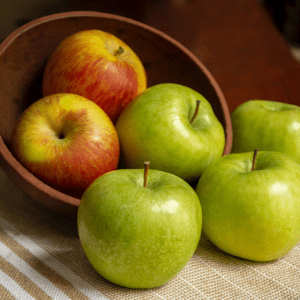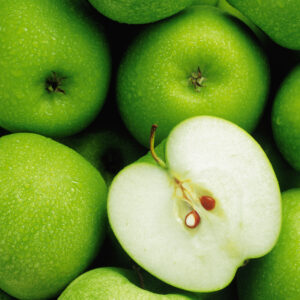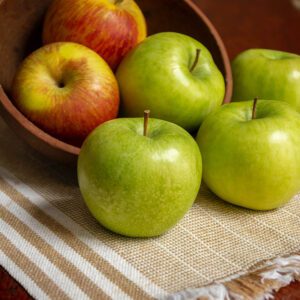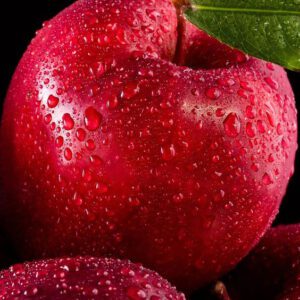KIWI
“Actinidia deliciosa” fruit can support heart health, digestive health, and immunity system
Product description
The kiwifruit, or Chinese gooseberry, originally grew wild in China. Kiwis are a nutrient-dense food; they are rich in nutrients and low in calories.
A schoolteacher introduced the fruitTrusted Source to New Zealand in 1904, upon returning from China with seeds. The New Zealanders called it "kiwi" after their national bird.
Kiwi and other fruits provide a range of health benefits due to their nutritional contents. Kiwis are a good source of vitamin C, antioxidants, and fiber.
Antioxidants, including vitamin C, choline, lutein, and zeaxanthin, help remove free radicals from the body. Free radicals are unstable molecules that the body produces during metabolism and other processes.
If too many free radicals build up, they can cause oxidative stress, which can result in cell damage. This damage may lead to issues such as heart disease or cancer. Antioxidants can help protect the body by removing free radicals.
Vitamin C contributes to the production of collagen, a key component in cells and organs throughout the body, including the skin. The vitamin also boosts the body’s ability to heal wounds.
A 2019 review of studies found that taking oral collagen supplements may help boost skin elasticity and hydration and reduce wrinkles. Taking supplements is not the same as consuming the vitamin C in kiwis, but eating the fruit may still help keep the skin healthy.
One kiwi weighing 69 grams (g)Trusted Source provides 64 milligrammes (mg) of vitamin C. This represents 71–85% of an adult’s daily vitamin C requirement. Trusted Source.
Kiwifruit also provides vitamin E, or tocopherol. The antioxidant properties of vitamin E and its ability to help protect the skin from sun damage may help prevent skin disorders.
Learn more about skin-friendly foods.
Kiwis contain fiber, potassium, and antioxidants, all of which may support heart health.
The American Heart Association (AHA) encourages people to increase their potassium intake while reducing their consumption of added salt or sodium.
Potassium relaxes the blood vessels, which helps manage blood pressure, and people with low blood pressure tend to be less likely to develop cardiovascular disease.
One kiwi contains about 215 mgTrusted Source of potassium, or nearly 5% of an adult’s daily requirementTrusted Source.
Kiwi’s fibre content may also benefit cardiovascular health. A reviewTrusted Source published in 2017 found that people who consume high amounts of fiber have a lower risk of developing cardiovascular disease. They also tend to have less low-density lipoprotein, or "bad," cholesterol.
One kiwi provides around 2 gTrusted Source of fiber, or 6–9% of an adult’s daily requirementTrusted Source.
The National Cancer Institute notes that high levels of free radicals in the body can cause damage to DNA that can result in various types of cancer.
Kiwis provide a trusted source of a range of antioxidants that help remove free radicals from the body. This is one way in which the fruit may help prevent cancer.
In addition, research from Trusted Source has shown that people who eat plenty of fibre, especially from fruits and cereals, are less likely to develop colorectal cancer than those who eat little fiber.
Kiwellin and kissper are proteins in kiwifruit that may have anti-inflammatory properties.
Laboratory findings Trusted sources have indicated that kissper may help manage inflammation in the human intestines.
Kiwifruit contains folate, which is essential for cell division. During pregnancy, doctors advise women to take additional folate, as it may protect the foetus from developmental problems such as neural tube abnormalities.
One Kiwi provides around 17.2 micrograms (mcg) of folate, or just over 4% of an adult’s daily requirement.
Learn more about the benefits of folate.
Kiwi contains vitamin K and traces of calcium and phosphorus, all of which contribute to bone health. An adequate intake of vitamin K (Trusted Source) may help prevent osteoporosis.
Vitamin K also plays an important role in blood clotting.
One Kiwi provides 23–30% of an adult’s daily requirement. trusted source of the vitamin.
Kiwi fruit is not often considered a "superfood," but in fact, it’s a fruit that is full of important vitamins and minerals and can have a very positive effect on your health. These brown fuzzy fruits have a sweet and slightly tangy taste with green flesh on the inside that lends a unique flavor and tropical zing.
Kiwi boasts a whole range of nutrients, such as fiber, vitamin C, folate, copper, potassium, antioxidants, vitamin E, and vitamin K. The skin and seeds are edible, though many people choose to peel them off because of their fuzzy texture.
Kiwis are a tough-growing fruit and are readily available throughout the year in supermarkets. They are grown in California from November to May and in New Zealand from June to October.
The fruit also comes in 50 different varieties, with flesh ranging from custard-like gold to bright pink, each with a varying flavour profile and use.
You may have heard that kiwi fruit is high in vitamin C, but besides that, it has an incredible nutritional profile. This low-calorie fruit (61 calories per 100 g) can provide your daily RDA with many vital nutrients.
Here is the nutritional profile of 100 grammes of raw kiwi fruit:
61 calories
0.5 g fat
3 mg of sodium
15 g of carbohydrates
9 g of sugar
3 g of dietary fibre
1.1g protein
Vitamin C, also known as ascorbic acid, is responsible for the growth and repair of body tissues as well as supporting the immune system. In addition to vitamin C, kiwis contain a good amount of vitamin K.
Vitamin K is a fat-soluble vitamin that regulates blood clotting, metabolism, and blood calcium levels. Considering it’s a fruit, kiwi contains an impressive amount of vitamin K at 40 mcg per cup.
Copper is a nutrient that works with iron to form red blood cells, supports healthy bones, nerves, and immune function, and helps iron absorption.
Copper is a prevalent nutrient in kiwis and provides 14% of your recommended daily intake. Kiwis also contain reasonable amounts of folate, potassium, and dietary fiber.
Suppliers
- GREECE
- NEW ZEALAND
- CHILE



